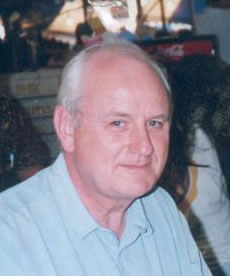Conversation with Andrés Lewin-Richter, Spanish Composer
From “doing the dirty jobs” to electronic music composer
This text is based on a correspondence with Andres Lewin-Richter on 17 September 2006. Originally published at the EMF Institute in 2006.
Andres Lewin-Richter is a composer of electroacoustic music and music for multimedia. While studying Engineering at Columbia University, he served as studio engineer for the Columbia-Princeton Electronic Music Center and sound engineer for the Alwin Nikolais Theater Ballet. He founded the Barcelona Electronic Music Studio in 1968 and in 1974 became a founding member of the Phonos Electronic Music Studio in Barcelona, which he presently serves as Secretary and Executive Director. He is also on the faculties of Pompeu Fabra University and Escola Superior de Musica de Catalunya.
http://www.dtic.upf.edu/~alewin
I assisted in the studios at Columbia-Princeton from September 1962 until May 1965. I had been a student in Barcelona, where I had finished my Electrical Engineering studies. I applied for a Fulbright Foundation fellowship in order to combine electrical engineering and music. At that time, my interests were in acoustics and computer science. I was enormously lucky that Professor Cyril Harris accepted me at Columbia to study architectural acoustics. He was the acoustician for the Metropolitan Opera and the final revision of Philharmonic Hall. I became his assistant on several research projects.

As soon I was set up in my room at John Jay Hall, I found out that the studio for electronic music was at Columbia and that Vladimir Ussachevsky was the professor. So I requested immediately a meeting with him, which was granted. I had experience recording and handling equipment for electroacoustic music concerts in Barcelona. Because of that, he immediately understood that I could be an asset in helping with concerts and maintenance. Ussachevsky was like a father to me before I got married, in June 1964. He helped me a lot as a human being. In particular, he found financial solutions for the two years I stayed at Columbia-Princeton after my Fulbright ran out.
My first job at the Center, just a few weeks after my first meeting with Ussachevsky, was to help at the Audio Engineering Conference Concert sponsored by Columbia-Princeton. On that occasion, I met Bülent Arel and Mario Davidovsky. 1[1. See Bob Gluck’s interview with Argentine-American composer Mario Davidovsky, “Generation One at the Columbia-Princeton Electronic Music Center,” in eContact! 15.4.] I was one of the people doing what Ussachevsky called “dirty jobs” — installing the 16-speaker system at McMillin Theater. Arel had just left Columbia-Princeton and Studio 106 had no maintenance engineer, so I covered the job, with no pay, since I had my Fulbright grant. I was in charge of many recordings for the Music Department and I became sound engineer for Alwin Nikolais ballet. I was also placed in charge of electroacoustic music concerts for the Columbia-Princeton Electronic Music Center at Carnegie Hall, McDonnell Library, Philarmonic Hall at Lincoln Center.
By doing maintenance, I became involved in helping composers and students with their tape work and tape techniques. So I learned to use all the available equipment. What I did not know, Mario Davidovsky, James Seawright, Vladimir Ussachevsky and Peter Mauzey helped me out on. Composition was new to me, but I helped Ussachevsky and Davidovsky many times. I learned by imitation and by asking lots of questions. Everyone was helpful. At that time [İlhan] Mimaroğlu used the studio at night but did not teach. I also learned from Milton Babbitt, Edgard Varèse and Alwin Nikolais. And I assisted Otto Luening, as well as students, among them Walter (Wendy) Carlos, Joan Tower, Tzvi Avni 2[2. See Bob Gluck’s interview with Turkish composer İlhan Mimaroğlu, “Uptown and Downtown, Electronic Music and “Free Jazz”, Ankara and New York,” and his interview with Israeli composer Tzvi Avni, “Go Find Your Own Tricks!,” in eContact! 14.4.] and Ami Maayani.
Social top